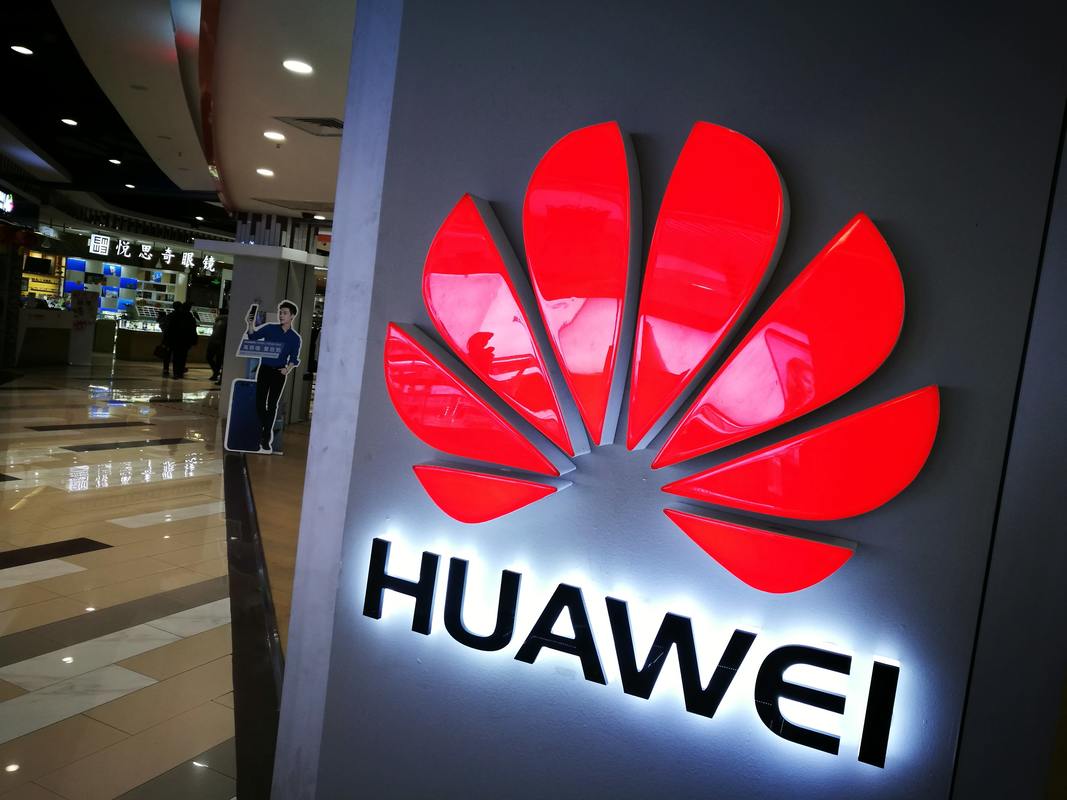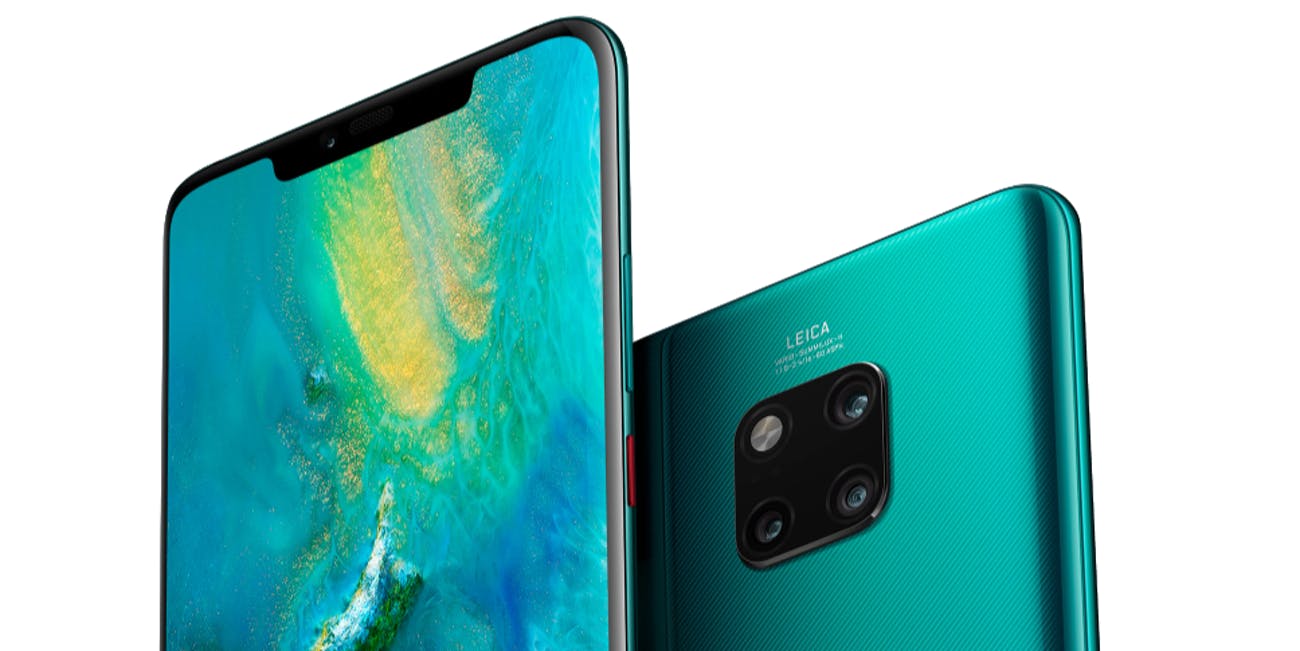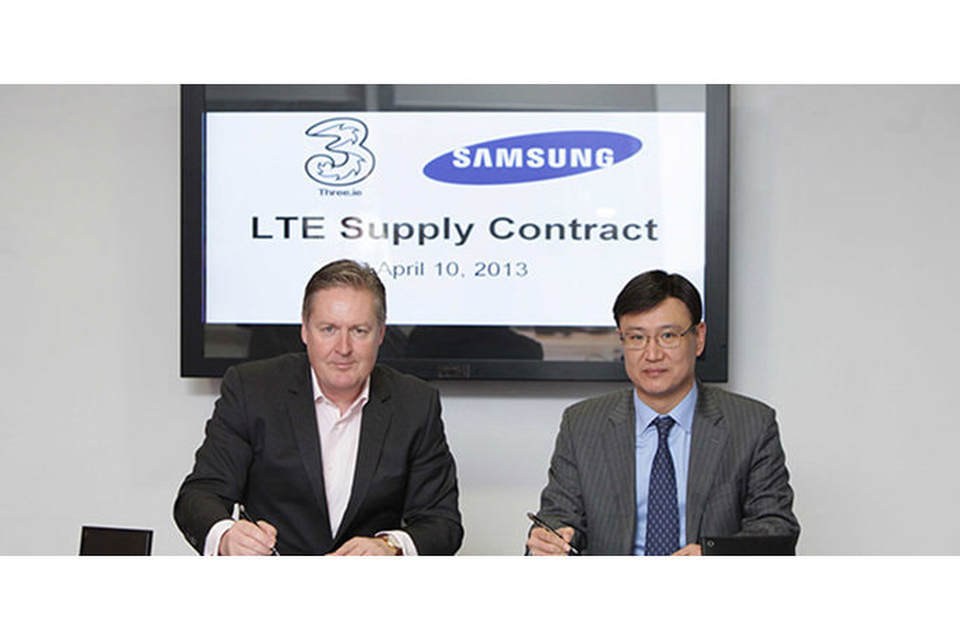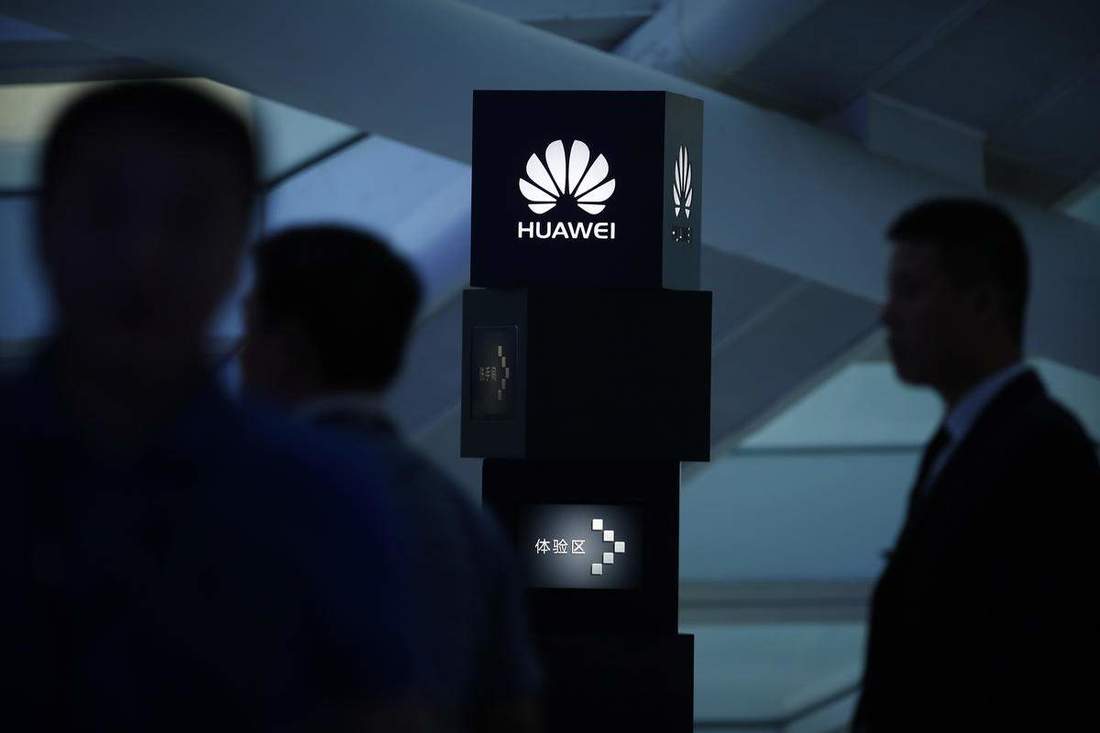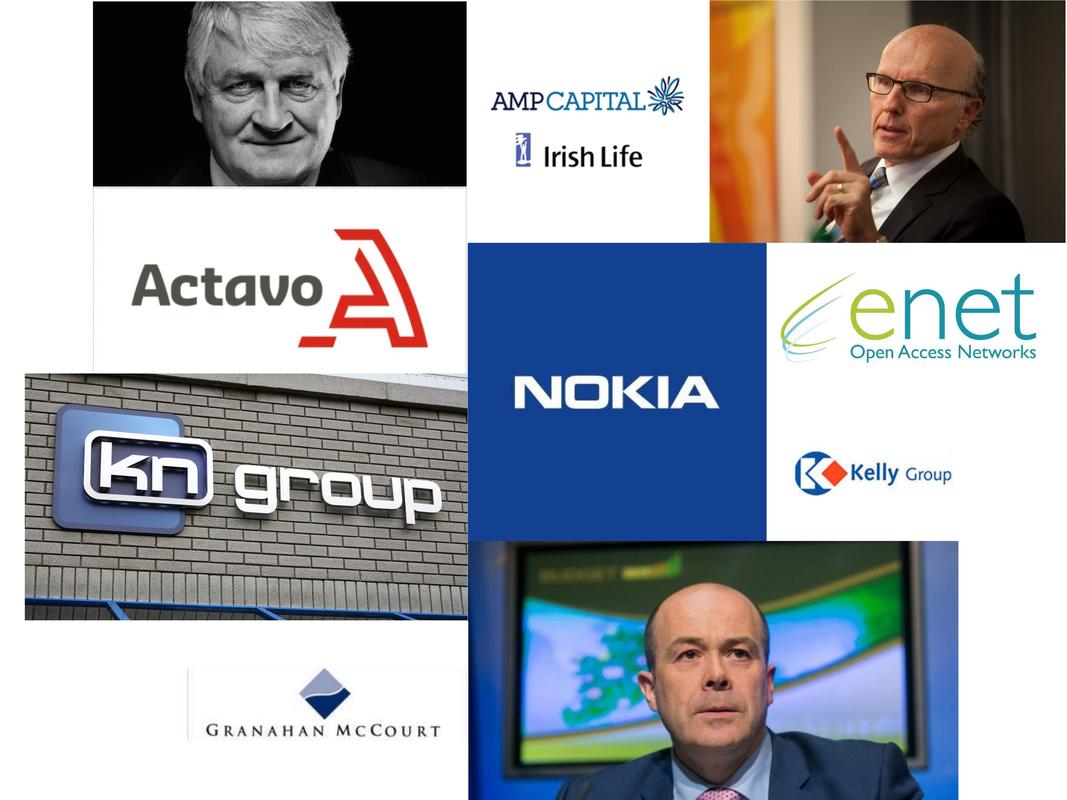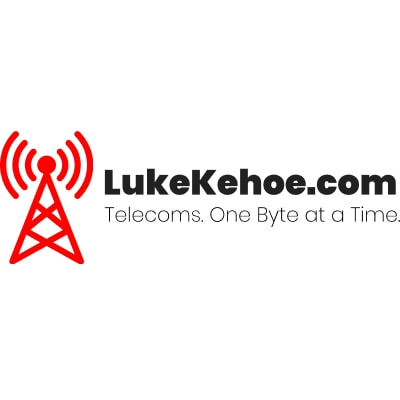In Ireland, Huawei finds a home with Three and eir, rebelling against Security Concerns
The image of a company pioneering 5G has been tarnished in an effort to select a scapegoat.
Published 21/10/18
When you think of Huawei, a company whose name provokes confusion amongst Europeans, what comes to mind? For many, you will think of Huawei's extensive and innovative smartphone range, a range that has passed out Apple's iPhone and catapulted the Chinese tech giant to become the second largest smartphone manufacturer in the world behind Samsung. Alternatively, you may recognise Huawei for its presence in networking equipment such as the routers supplied by eir and Vodafone in Ireland.
A lesser-known division within Huawei is its role as a major vendor for mobile networking equipment across the world. When you or I send a text, place a call, or stream a YouTube video, the chances that Huawei's equipment is involved in this process are high. The Chinese tech giant has risen to glory because of its strong presence in Europe and Asia, a result of the company's ambitions to rival long-standing giants in Silicon Valley. In all essence, Huawei has done for China what Google has done for the US, inspired the growth of thousands of other tech startups in cities such as Shenzhen, where the company's global headquarters lies.
But, in a world where the emergence of China from poverty to prosperity has Uncle Sam sleeping with one eye open, even the most powerful of Chinese tech companies are beholding to the challenge of public perception. And, the US government knows a thing or two about this, remember the Snowden leaks?
Huawei has found itself become a political football, as many have pointed out, with the US manipulating the public's perception of the company in an effort to shield some of its home-grown tech giants such as Apple. By banning the entry of Huawei into the American market based on "security concerns", the US has set a dangerous precedent in which other countries find themselves forced to follow. Of course, if there was evidence to support these "security concerns", we could only thank the US for taking preemptive action. However, the thing is, to this day, the US has failed to provide any evidence to support its narrative about Huawei. The same is true in Australia, which has basically been bullied into banning the company from providing 5G networking equipment because of its "close ties to the Chinese government".
In banning Huawei, the US is essentially showing technological innovation the middle finger. It's something along the lines of "we will embrace innovation, but not if its Chinese innovation". In my eyes, and in the eyes of the industry, the US has embarked on a smear campaign against Huawei. This is a dangerous, ill-advised and ultimately fatal move by the US that will work to stifle innovation, erect unnecessary barriers in the technology industry and hold back the advancement of our race.
A lesser-known division within Huawei is its role as a major vendor for mobile networking equipment across the world. When you or I send a text, place a call, or stream a YouTube video, the chances that Huawei's equipment is involved in this process are high. The Chinese tech giant has risen to glory because of its strong presence in Europe and Asia, a result of the company's ambitions to rival long-standing giants in Silicon Valley. In all essence, Huawei has done for China what Google has done for the US, inspired the growth of thousands of other tech startups in cities such as Shenzhen, where the company's global headquarters lies.
But, in a world where the emergence of China from poverty to prosperity has Uncle Sam sleeping with one eye open, even the most powerful of Chinese tech companies are beholding to the challenge of public perception. And, the US government knows a thing or two about this, remember the Snowden leaks?
Huawei has found itself become a political football, as many have pointed out, with the US manipulating the public's perception of the company in an effort to shield some of its home-grown tech giants such as Apple. By banning the entry of Huawei into the American market based on "security concerns", the US has set a dangerous precedent in which other countries find themselves forced to follow. Of course, if there was evidence to support these "security concerns", we could only thank the US for taking preemptive action. However, the thing is, to this day, the US has failed to provide any evidence to support its narrative about Huawei. The same is true in Australia, which has basically been bullied into banning the company from providing 5G networking equipment because of its "close ties to the Chinese government".
In banning Huawei, the US is essentially showing technological innovation the middle finger. It's something along the lines of "we will embrace innovation, but not if its Chinese innovation". In my eyes, and in the eyes of the industry, the US has embarked on a smear campaign against Huawei. This is a dangerous, ill-advised and ultimately fatal move by the US that will work to stifle innovation, erect unnecessary barriers in the technology industry and hold back the advancement of our race.
The American Kettle calling the Chinese Teapot Black
In proverbial terms, this is a case of the kettle calling the teapot black. The intrusive and illegal surveillance programmes that have been developed by US spy agencies such as the National Security Agency (NSA) are well documented. From infiltrating foreign utility providers to implementing spy antennas designed to sniff mobile users traffic, the US is an expert at spying on its citizens, and on citizens which live thousands of miles away across the Atlantic and Pacific Oceans. At this stage, you would need to be delusional to believe that your online activity is private. Snowden revealed that companies such as Apple, Google, Facebook and Microsoft handed an obscene amount of data about their users to the NSA, and that goes well beyond metadata.
I mean, it is ridiculous that senators in the US, who were laughed at for their technological incompetence during the questioning of Mark Zuckerburg, are now lobbying countries such as Canada to ban Huawei. If this doesn't ring the alarm bells of suspicion, what does?
It seems a bit peculiar to me that Australians would be fine with the US spying on them, but freak out about the notions of the Chinese doing the same. The fact is that the US, China, UK, Russia and dozens of other countries carry out spying on one another on a daily basis. "Security concerns" has merely been used as an excuse to cover up a wider dissatisfaction in the US with the rise of competitive tech companies in China. With dramatically lower labour costs and a workforce educated to understand microelectronics in their teens, China is emerging as the tech capital of the world, much to the envy of the US.
For Huawei, having access to a market as large as the US would be a dream come true. Sure, Huawei is present in China and India, but US consumers and carriers splurge on their phones and networks like no other. For example, the majority of Apple's profits are still produced in the US market, and the same can be said for the profits of networking vendors such as Ericsson.
When reports emerged that Huawei spent over €11 billion on research and development in 2017, and projects to spend over €17 billion annually after this year, I could only revel in the excitement of such news. Few companies are investing in our future quite as much as Huawei is and the positive results of the company's efforts are already obvious. It's latest flagship smartphone, the Mate 20 Pro, is the most ambitious and technologically advanced mobile device ever produced, and the company continues to push the bar higher for the entire industry.
I mean, it is ridiculous that senators in the US, who were laughed at for their technological incompetence during the questioning of Mark Zuckerburg, are now lobbying countries such as Canada to ban Huawei. If this doesn't ring the alarm bells of suspicion, what does?
It seems a bit peculiar to me that Australians would be fine with the US spying on them, but freak out about the notions of the Chinese doing the same. The fact is that the US, China, UK, Russia and dozens of other countries carry out spying on one another on a daily basis. "Security concerns" has merely been used as an excuse to cover up a wider dissatisfaction in the US with the rise of competitive tech companies in China. With dramatically lower labour costs and a workforce educated to understand microelectronics in their teens, China is emerging as the tech capital of the world, much to the envy of the US.
For Huawei, having access to a market as large as the US would be a dream come true. Sure, Huawei is present in China and India, but US consumers and carriers splurge on their phones and networks like no other. For example, the majority of Apple's profits are still produced in the US market, and the same can be said for the profits of networking vendors such as Ericsson.
When reports emerged that Huawei spent over €11 billion on research and development in 2017, and projects to spend over €17 billion annually after this year, I could only revel in the excitement of such news. Few companies are investing in our future quite as much as Huawei is and the positive results of the company's efforts are already obvious. It's latest flagship smartphone, the Mate 20 Pro, is the most ambitious and technologically advanced mobile device ever produced, and the company continues to push the bar higher for the entire industry.
Ireland opens its arms to Huawei
In a rebellion against the taunts of "security concerns", Huawei has pushed its way into the continent of Europe with great zest. It is ironic that a company feared for its security is thriving in the European market, where the existence of stringent privacy laws is well-known. Huawei's smartphone division is performing particularly well across the continent, much to the envy of Apple and Samsung, as consumers seek devices which stand out from an increasingly homogenous crowd.
Back on the Emerald Isle, Three is coming to the end of its contract with network vendor Samsung. The contract with Samsung was signed back in 2013 and saw the vendor providing equipment to enable the rollout of Three's 1800MHz 4G RAN and to supply 4G core equipment. Prior to this, Nokia provided 3G network equipment for the merged entity. With the company's acquisition of O2 in 2015, the scale and complexity of Three's network dramatically ballooned overnight, leading to several consecutive months of network outages and spectrum shortages. The initial merging process of the Three 3G network and O2 2G/3G network was a mess, to say the least, and this marks a tumultuous time in the company's history.
The conclusion of Samsung's contract with Three comes at a time when the realisation of improvements produced following the provider's complex network consolidation programme is only now coming to life. Together, Three and Samsung have managed to develop a state-of-the-art mobile network built to carry more data than all of its competitors. Nonetheless, Three has waved goodbye to the South Korean conglomerate and now finds itself in bed with Huawei. If I was Huawei, I would be thrilled to find a partner in Three, given the fact that the mobile provider holds almost 45% of all spectrum licensed by ComReg for 3G and 4G networks.
Admittedly, there are several downsides to changing network vendor every time a new standard of wireless technology is around the corner. Increased cost and complexity are the primaries of these, partly because equipment manufacturers such as Sweden's Ericsson have promised software upgrades to their existing portfolio of equipment that will allow providers to roll out early 5G networks remotely. On the topic of Ericsson, Ireland's largest and most respected network, Vodafone, has maintained a cosy relationship with the vendor for a very long time now. This consistent relationship with Ericsson has allowed Vodafone to reduce costs and complexities, paving the way for a faster deployment of 5G. As an example, the pace of Vodafone's 4G rollout, under Project Darwin, was unmatched in Ireland because the company could overlay 4G equipment from Ericsson on top of the existing 3G equipment. These same premises have not been the case with Three's network.
Back on the Emerald Isle, Three is coming to the end of its contract with network vendor Samsung. The contract with Samsung was signed back in 2013 and saw the vendor providing equipment to enable the rollout of Three's 1800MHz 4G RAN and to supply 4G core equipment. Prior to this, Nokia provided 3G network equipment for the merged entity. With the company's acquisition of O2 in 2015, the scale and complexity of Three's network dramatically ballooned overnight, leading to several consecutive months of network outages and spectrum shortages. The initial merging process of the Three 3G network and O2 2G/3G network was a mess, to say the least, and this marks a tumultuous time in the company's history.
The conclusion of Samsung's contract with Three comes at a time when the realisation of improvements produced following the provider's complex network consolidation programme is only now coming to life. Together, Three and Samsung have managed to develop a state-of-the-art mobile network built to carry more data than all of its competitors. Nonetheless, Three has waved goodbye to the South Korean conglomerate and now finds itself in bed with Huawei. If I was Huawei, I would be thrilled to find a partner in Three, given the fact that the mobile provider holds almost 45% of all spectrum licensed by ComReg for 3G and 4G networks.
Admittedly, there are several downsides to changing network vendor every time a new standard of wireless technology is around the corner. Increased cost and complexity are the primaries of these, partly because equipment manufacturers such as Sweden's Ericsson have promised software upgrades to their existing portfolio of equipment that will allow providers to roll out early 5G networks remotely. On the topic of Ericsson, Ireland's largest and most respected network, Vodafone, has maintained a cosy relationship with the vendor for a very long time now. This consistent relationship with Ericsson has allowed Vodafone to reduce costs and complexities, paving the way for a faster deployment of 5G. As an example, the pace of Vodafone's 4G rollout, under Project Darwin, was unmatched in Ireland because the company could overlay 4G equipment from Ericsson on top of the existing 3G equipment. These same premises have not been the case with Three's network.
Three and eir embrace Huawei, while Vodafone sides with Ericsson
While the full details of Three's contract with Huawei remain under wraps, industry sources state that the contract will involve the complete removal of Samsung's 4G equipment from Three's sites across Ireland and replacement with superior equipment from Huawei. Furthermore, Huawei will play an integral role in the deployment of Three's 5G network, which the company has touted to launch 2019, using 100MHz of the 3.6GHz spectrum which it acquired nationally from ComReg. Later down the road will be the utilisation of mmWave spectrum in the 26GHz band, and Huawei's work on beam forming and other key techniques will allow Three to deliver a top quality network for its customers in Ireland.
eir is also working with Huawei on its full network swap. Upon completion, Huawei will gain control of over 60% of RANs in Ireland, an unprecedented achievement for a company that was non-existent in this space not so long ago in Ireland. The company also provides the Optical Line Terminals (OLTs) and Optical Network Terminals (ONTs) which eir has used to roll out its FTTH network across Ireland, as well as the equipment used in eir's fibre cabinets that provide broadband speeds of up to 100Mbps to urban residents.
Whether we like it or not, Huawei is now deeply entrenched in Ireland's telecoms infrastructure, and its importance is only going to expand with time.
eir is also working with Huawei on its full network swap. Upon completion, Huawei will gain control of over 60% of RANs in Ireland, an unprecedented achievement for a company that was non-existent in this space not so long ago in Ireland. The company also provides the Optical Line Terminals (OLTs) and Optical Network Terminals (ONTs) which eir has used to roll out its FTTH network across Ireland, as well as the equipment used in eir's fibre cabinets that provide broadband speeds of up to 100Mbps to urban residents.
Whether we like it or not, Huawei is now deeply entrenched in Ireland's telecoms infrastructure, and its importance is only going to expand with time.
Conclusion: Fear of Chinese Innovation
Let's try to bring a sense of finality to this article. In today's hyper-connected world, our privacy is under attack from every angle, whether that is the smart speakers that we place in our homes or the security cameras that capture our every move around cities. All of these smart devices have one thing in common, a connection to the Internet. Control that connection and you basically gain control over huge swathes of infrastructure, giving way to a dystopian future where a blackout can be initiated with the touch of a single button.
Huawei has the potential to control that button, the company provides the equipment that enables us to connect to the Internet and produces the very devices which we use every day. It's also clear that as the surveillance state, China maintains disturbingly close ties to its tech companies. Personally, I think strong security should be at the forefront of every device and system in today's world, even if it comes at expense of innovation.
But, to this day, no one has ever managed to produce any evidence in support of the claims that Huawei is a "security threat". Even the US, a country with vast resources poured into espionage, has been unable to provide the public with credible information against Huawei. The lack of evidence hasn't thwarted the US from using Huawei as a scapegoat for a dissatisfaction that is now rampant across the country. This dissatisfaction boils down to one thing: the thought of losing the technological arms race to China.
All I can tell you are the facts, the information that is actually true. Those facts paint a pretty picture for the Chinese company, one that is a far cry from the criticism that Huawei has endured. With a flourishing smartphone and networking business, Huawei's future is very bright. In Ireland, Three's decision to choose Huawei for rolling out its 5G network should be looked upon with great joy, because it means innovation has no limitations. Unlike the US, Australia and possibly Canada, Ireland is embracing the arrival of Huawei, and with it, the introduction of advanced technological breakthroughs which have been made possible by a gigantic R&D budget. If we wish for meaningful innovation in the telecoms space, we need to eliminate the barriers that divide us. I'm not an advocate of Huawei, more so, an advocate of innovation.
Huawei has the potential to control that button, the company provides the equipment that enables us to connect to the Internet and produces the very devices which we use every day. It's also clear that as the surveillance state, China maintains disturbingly close ties to its tech companies. Personally, I think strong security should be at the forefront of every device and system in today's world, even if it comes at expense of innovation.
But, to this day, no one has ever managed to produce any evidence in support of the claims that Huawei is a "security threat". Even the US, a country with vast resources poured into espionage, has been unable to provide the public with credible information against Huawei. The lack of evidence hasn't thwarted the US from using Huawei as a scapegoat for a dissatisfaction that is now rampant across the country. This dissatisfaction boils down to one thing: the thought of losing the technological arms race to China.
All I can tell you are the facts, the information that is actually true. Those facts paint a pretty picture for the Chinese company, one that is a far cry from the criticism that Huawei has endured. With a flourishing smartphone and networking business, Huawei's future is very bright. In Ireland, Three's decision to choose Huawei for rolling out its 5G network should be looked upon with great joy, because it means innovation has no limitations. Unlike the US, Australia and possibly Canada, Ireland is embracing the arrival of Huawei, and with it, the introduction of advanced technological breakthroughs which have been made possible by a gigantic R&D budget. If we wish for meaningful innovation in the telecoms space, we need to eliminate the barriers that divide us. I'm not an advocate of Huawei, more so, an advocate of innovation.
